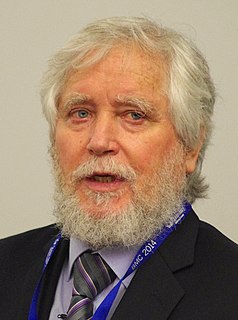A Quote by George Polya
If you have to prove a theorem, do not rush. First of all, understand fully what the theorem says, try to see clearly what it means. Then check the theorem; it could be false. Examine the consequences, verify as many particular instances as are needed to convince yourself of the truth. When you have satisfied yourself that the theorem is true, you can start proving it.
Related Quotes
I think that if your tenure case depends on your proving what you thought was a mathematical theorem and the proposed theorem turns out to be false just before your tenure decision, and you want to get tenure very badly, there is a sense in which it's perfectly understandable and reasonable of you to wish the proposed theorem were true and provable, even if it's logically impossible for it to be.
Too much knowledge could be a bad thing. I was lead to the Szemerédi theorem by proving a result, about squares, that Euler had already proven, and I relied on an "obvious" fact, about arithmetical progressions, that was unproved at the time. But that lead me to try and prove that formerly unproved statement- about arithmetical progressions-and that ultimately lead to the Szemerédi Theorem.
In the "commentatio" (note presented to the Russian Academy) in which his theorem on polyhedra (on the number of faces, edges and vertices) was first published Euler gives no proof. In place of a proof, he offers an inductive argument: he verifies the relation in a variety of special cases. There is little doubt that he also discovered the theorem, as many of his other results, inductively.
Bells theorem dealt a shattering blow to Einsteins position by showing that the conception of reality as consisting of separate parts, joined by local connections, is incompatible with quantum theory... Bells theorem demonstrates that the universe is fundamentally interconnected, interdependent, and inseparable.
We re-make nature by the act of discovery, in the poem or in the theorem. And the great poem and the deep theorem are new to every reader, and yet are his own experiences, because he himself re-creates them. They are the marks of unity in variety; and in the instant when the mind seizes this for itself, in art or in science, the heart misses a beat.
There's only one problem that bothers me. And that's something my theorem [ of Impossibility] really doesn't cover. In my theorem I was assuming people vote sincerely. The trouble with methods where you have three or four classes, I think if people vote sincerely they may well be very satisfactory. The problem is the incentive to misrepresent your vote may be high.
We live in a society where we're not taught how to deal with our weaknesses and frailties as human beings. We're not taught how to speak to our difficulties and challenges. We're taught the Pythagorean theorem and chemistry and biology and history. We're not taught anger management. We're not taught dissolution of fear and how to process shame and guilt. I've never in my life ever used the Pythagorean theorem!
A human being without the proper empathy or feeling is the same as an android built so as to lack it, either by design or mistake. We mean, basically, someone who does not care about the fate which his fellow living creatures fall victim to; he stands detached, a spectator, acting out by his indifference John Donne's theorem that "No man is an island," but giving that theorem a twist: that which is a mental and a moral island is not a man.
How can you shorten the subject? That stern struggle with the multiplication table, for many people not yet ended in victory, how can you make it less? Square root, as obdurate as a hardwood stump in a pasturenothing but years of effort can extract it. You can't hurry the process. Or pass from arithmetic to algebra; you can't shoulder your way past quadratic equations or ripple through the binomial theorem. Instead, the other way; your feet are impeded in the tangled growth, your pace slackens, you sink and fall somewhere near the binomial theorem with the calculus in sight on the horizon.



































